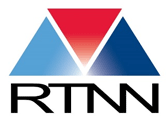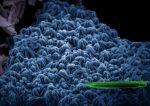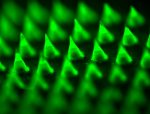The Analytical Instrumentation Facility (AIF) at NC State seeks a talented individual to join our team as a Business Services Coordinator. The Business Services Coordinator oversees the business and financial management of a complex and evolving Service Center within the College of Engineering. This individual performs a range of responsibilities in areas including Business Administration, Financial Management, Information Analysis and Decision Making, Communication, and Human Resources. Most notably, the individual analyzes and evaluates facility operations and data and is empowered to make decisions to increase efficiency. The individual also manages one Administrative Support Specialist position in the unit. More details are available in the job description posted on the website: http://jobs.ncsu.edu/postings/76885.
The AIF is NC State’s primary shared facility for materials characterization with a mission to enable and lead state-of-the-art research through acquisition, development, maintenance, training, and access to major analytical and materials characterization instrumentation. Through the support of engaged faculty and experienced staff, the AIF supports state-of-the-art scanning and transmission electron microscopes, X-ray scattering and spectroscopy instruments, mass spectrometry, scanning probe microscopy, nanoindentation, and extensive sample preparation facilities.
Questions about the position can be directed to aif-contact@ncsu.edu.




 Joshua Zhou: Coral Reef The viewing window of a scanning electron microscope halts before a field of “coral reef”, ordered clusters of vanadium oxide nanorods. Another rod rests on their surface, like a fish seeking shelter from predators. Characterizing the shape of vanadium oxide nanomaterials can account for changes in their thermochromic properties.
Joshua Zhou: Coral Reef The viewing window of a scanning electron microscope halts before a field of “coral reef”, ordered clusters of vanadium oxide nanorods. Another rod rests on their surface, like a fish seeking shelter from predators. Characterizing the shape of vanadium oxide nanomaterials can account for changes in their thermochromic properties. Yanqi Ye: Smart Melanoma Patch Fluorescence imaging of a representative microneedle patch that contained FITC-aPD1 loaded NPs for melanoma treatment. Despite recent advances in melanoma treatment through the use of anti-PD- 1 (aPD1) immunotherapy, the efficacy of this method remains to be improved. Here we report an innovative self-degradable microneedle (MN) patch for the sustained delivery of aPD1 in a physiologically controllable manner. Moreover, this administration strategy can integrate with other immunomodulators (such as anti-CTLA- 4) to achieve combination therapy for enhancing anti-tumor efficacy.
Yanqi Ye: Smart Melanoma Patch Fluorescence imaging of a representative microneedle patch that contained FITC-aPD1 loaded NPs for melanoma treatment. Despite recent advances in melanoma treatment through the use of anti-PD- 1 (aPD1) immunotherapy, the efficacy of this method remains to be improved. Here we report an innovative self-degradable microneedle (MN) patch for the sustained delivery of aPD1 in a physiologically controllable manner. Moreover, this administration strategy can integrate with other immunomodulators (such as anti-CTLA- 4) to achieve combination therapy for enhancing anti-tumor efficacy.